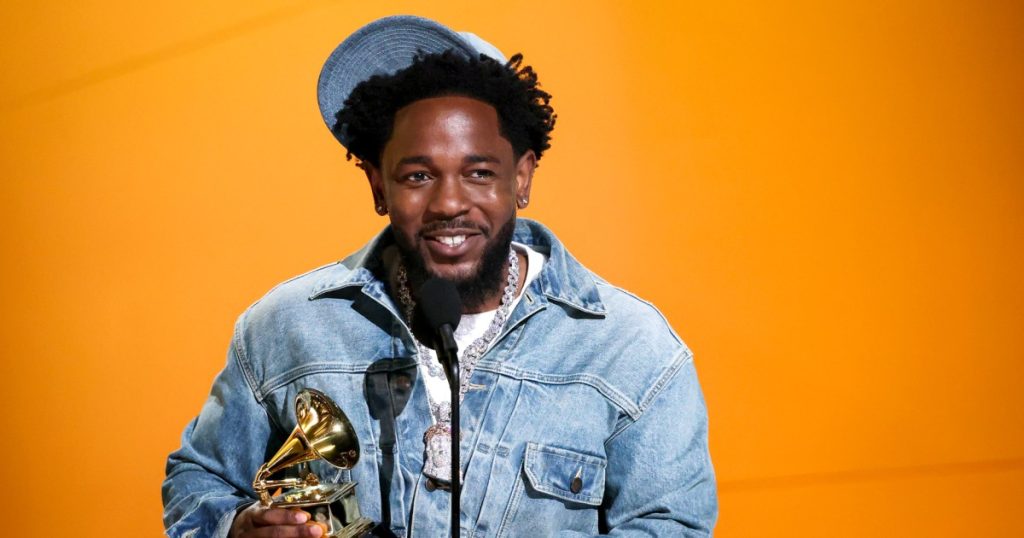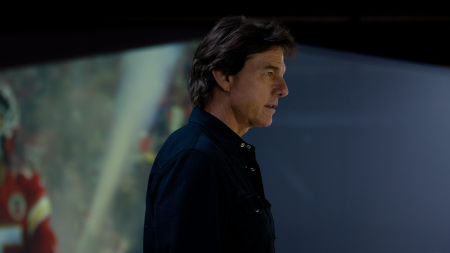February 2024 has already been a monumental month for Kendrick Lamar, and it’s shaping up to be one of the most significant periods in his already illustrious career. Fresh off the heels of a blistering 2024, Lamar is set to take the stage at the Caesars Superdome in New Orleans on Sunday night as the headliner of the Super Bowl halftime show. This performance marks a historic milestone, as Lamar will become the first solo hip-hop artist to headline the event. When the NFL announced his involvement back in September, Lamar made his intentions clear: “Rap music is still the most impactful genre to date. And I’ll be there to remind the world why. They got the right one.” His words resonate deeply, as hip-hop continues to dominate global culture, and Lamar’s presence at the Super Bowl serves as a testament to the genre’s enduring influence.
Lamar’s journey to this moment is a testament to his unwavering dedication and passion for his craft. Speaking at an Apple Music news conference, he reflected on his early days as an artist, admitting that he never imagined performing at the Super Bowl. “What I know is, the passion I have now is still the passion I had then, and I think that carried on to the Super Bowl,” he said. This passion has been a driving force behind his career, propelling him to heights few could have predicted. When he last performed at the Super Bowl in 2022, he was part of a star-studded West Coast-themed show at L.A.’s SoFi Stadium. Now, as the solo headliner, Lamar is cementing his legacy as one of the most influential figures in hip-hop. As he noted, this performance “puts the culture on the forefront, where it needs to be, and not just a catchy song or verse. This is a true art form.”
The halftime show is highly anticipated, with Lamar hinting that audiences can expect a dynamic blend of storytelling and artistry. “I like to always carry on that sense of, you know, make people listen, but also see and think a little,” he said. This approach has been a hallmark of his career, as Lamar has consistently used his music to weave intricate narratives that reflect the complexities of society, culture, and personal identity. His ability to merge thought-provoking lyrics with captivating visuals has made him a standout artist, and fans are eager to see how he will bring this energy to the Super Bowl stage. Joining him will be SZA, a talented artist who has collaborated with Lamar on his recent album GNX, which dropped in November. Lamar has praised SZA’s talent, calling her a star from the very beginning and expressing his honor to share the stage with her.
Lamar’s recent success is undeniably tied to his chart-topping single “Not Like Us,” a diss track aimed at fellow rapper Drake. Released last summer, the song debuted at No. 1 on the Billboard Hot 100 and became the fastest rap song to reach 700 million streams on Spotify. Its popularity was so immense that it even sparked a legal battle, with Drake filing a lawsuit against Universal Music Group, the label representing both artists, accusing UMG of using its resources to amplify Lamar’s track at his expense. While a spokesperson for UMG has denied the allegations, the song’s impact remains undeniable. “Not Like Us” not only solidified Lamar’s status as a dominant force in hip-hop but also earned him a slew of Grammy nominations, further cementing his reputation as one of the most decorated artists in the genre.
Lamar’s achievements extend far beyond his commercial success. He is widely regarded as one of the most influential and innovative rappers of his generation, with a staggering 22 Grammy Awards and 29 BET Awards to his name. In 2018, he made history by becoming the first musician outside of classical or jazz genres to win a Pulitzer Prize for music, a recognition of his groundbreaking work on his 2017 album DAMN. This year, he continued his winning streak at the Grammy Awards, taking home five trophies, including both Song and Record of the Year for “Not Like Us.” Reflecting on the song’s success, Lamar emphasized its deeper significance, saying, “I love to see that it gets that type of recognition for just straight raps, from awards to the billboards, all that, because this is truly just as big an art form and a genre as any other genre.”
As Lamar prepares to take the Super Bowl stage, he is acutely aware of the cultural significance of this moment. For him, it’s not just about performing for millions of viewers—it’s about representing a community and a culture that has often been marginalized. “I can truly say it’s to express myself and express things that people can’t necessarily say on the daily and for them to actually relate to,” he said. “And come from the most vulnerable place where people can actually feel it. For me, that’s the role for me as an artist.” This vulnerability and authenticity have been the heartbeat of Lamar’s career, driving him to create music that resonates on a profound level. As he stands on the brink of another historic performance, there’s no doubt that Kendrick Lamar will continue to redefine what it means to be an artist, a storyteller, and a voice for the culture. His journey is a testament to the power of hip-hop and the enduring impact of one man’s passion and vision.












